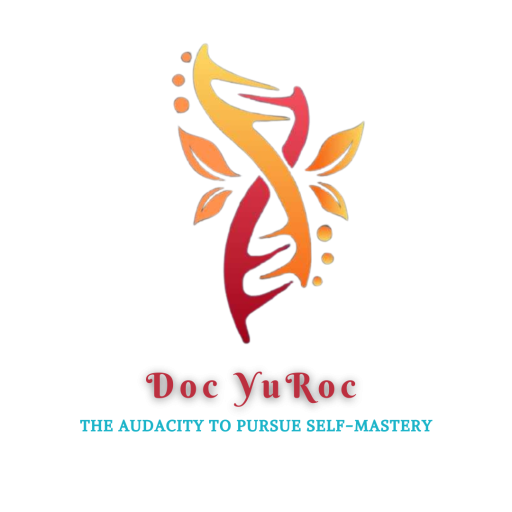Black women are out here doing the damn thang!
They are running fortune 500 comapanies, they are creating new businessess, they are breaking financial curses, they are creating generational wealth, and they are burning out. They are dealing with chronic illness, operating in isolation, soothing with substances, and suffering in silence as they struggle to sustain healthy and loving relationships.
Black women who are financially successful face unique challenges that can take a toll on their mental health and often these same women don’t take the time to mediate that toll; busy building bank yet ignoring how broken they feel. Because, despite the fact that these women have shattered systemic barriers to achieve financial success, they continue to face discrimination, racism, and sexism, leading to negative impacts on their mental health.
According to the U.S. Bureau of Labor Statistics, Black women make up only 6.3% of the workforce in management, professional, and related occupations, and only 4.4% of those women earn over $100,000 annually. Despite these challenges, Black women have continued to break through these barriers and are now more successful than ever before. However, this success often comes at a cost.
Studies show that Black women who are financially successful face a unique set of challenges, including workplace discrimination, lack of mentorship, and social isolation. A study published in the Journal of Career Development found that successful Black women were more likely to experience isolation and loneliness, and felt they had to work twice as hard to prove themselves. This isolation can stem from feeling like they are the only one in their professional circles, where they may not be surrounded by other Black women or people of color, they may feel like they cannot relate to others or share their experiences.
This pressure to succeed can lead to feelings of exhaustion and burnout. A study published in the Journal of Occupational Health Psychology found that Black women in leadership roles experienced higher levels of stress and burnout than their white counterparts (Thomas & Murrell, 2009). This burnout can lead to symptoms of depression, anxiety, and physical health concerns which often are long ignored, another sacrifice on the alter of success.
Imposter syndrome is a psychological pattern where an individual doubts their accomplishments and feels like a fraud, despite evidence of their success. Financially successful Black women are more likely to experience imposter syndrome than other demographic groups. According to a study published in the Journal of Counseling Psychology, imposter syndrome is a prevalent issue among Black women in leadership roles, leading to anxiety, depression, and low self-esteem (Cokley et al., 2013). These feelings of self-doubt and inadequacy can exacerbate a Black woman’s need to succeed and lead to further burnout, depression, isolation, and despair. Of course, she can’t show just how burdened she feels because she is a Strong Black Woman!
The “strong Black woman” stereotype expects Black women to be emotionally strong, resilient, and self-sufficient, leading to a reluctance to seek help or support. A study published in the Journal of Black Psychology found that the “strong Black woman” stereotype was associated with increased psychological distress, including anxiety and depression. This patterning of events creates a vcious cycle of repressed and unprocessed pain.
Given the unique challenges faced by financially successful Black women, there is a clear need for specialized resources and support to address their mental health struggles. One such resource is culturally competent therapeutic services. Research has shown that Black women are more likely to seek mental health care from providers who share their cultural background and experiences. Culturally competent providers understand the unique positioning and challenges faced by financially successful Black women, including the impact of systemic racism and sexism on their mental health. These providers can offer culturally sensitive treatments that consider the singular needs and experiences of this population.
Mentorship and support groups specifically tailored to financially successful Black women are another resource. A study published in the Journal of Occupational Health Psychology found that mentorship from successful women of color can positively impact the well-being of Black women in leadership roles. Support groups can also provide a safe space for financially successful Black women to connect with others who get it.
Unfortunatley “Hyper Independance” cultivated from “Chronic Disapointment” has led many Black women to hesititate in seeking support leading to an epidemic of what some are calling “High Functioning Depression.” This is not necessary though, support, safe space, and resources centering the lived experience of Black women are available.
Stay connected as we continue this conversation. Until next time…
ABOUT THE AUTHOR: Dr. Yulinda Renee
As a Certified Trauma Trained Clinical Counselor with a Doctorate in Sexology, my goal is to invite us (specifically Black women) to be brave and lean into our healing process and approach our wounds with curiosity. I’ve created a framework that allows this to be done with intention, non-judgment, and grace. Self Reconciliation Therapy is a model where you heal your relationship with Self, Source, and others.
Fo more information please visit my website DocYuRoc
References:
Bettis, P. J. (2016). The intersection of race, gender, and socioeconomic status: Implications for African American women’s career development. Journal of Career Development, 43(1), 73-87.
Cokley, K. O., McClain, S., Enciso, A., & Martinez, M. (2013). An examination of the impact of the impostor phenomenon and stereotype threat on the mental health of Black women. Journal of Counseling Psychology, 60(4), 500–509.
Crenshaw, K. (1989). Demarginalizing the intersection of race and sex: A Black feminist critique of antidiscrimination doctrine, feminist theory and antiracist politics. University of Chicago Legal Forum, 139-167.
Hill, R. J., & Silva, E. B. (2005). Exploring the psychological impact of the “Strong Black Woman” schema. Journal of Black Psychology, 31(3), 259-281.
U.S. Bureau of Labor Statistics. (2020). Labor force statistics from the Current Population Survey. Retrieved from https://www.bls.gov/cps/cpsaat11.htm.


Recent Comments